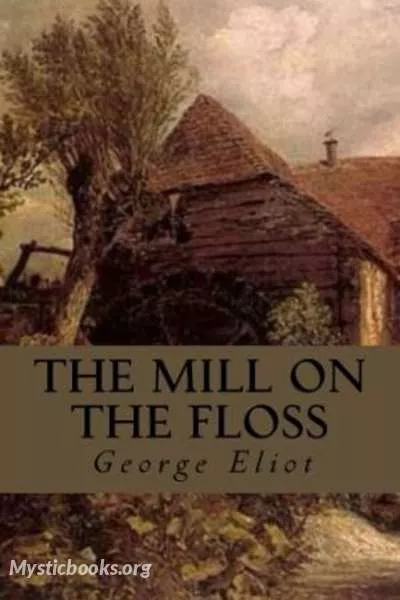
The Mill on the Floss
by George Eliot
'The Mill on the Floss' Summary
Spanning a period of 10 to 15 years, the novel details the lives of Tom and Maggie Tulliver, siblings who grow up at Dorlcote Mill on the River Floss. The mill is situated at the junction of the River Floss and the more minor River Ripple, near the village of St Ogg's in Lincolnshire, England. Both the river and the village are fictional.
The novel begins in the late 1820s or early 1830s – several historical references place the events in the book after the Napoleonic Wars but before the Reform Act of 1832. (In chapter 3, the character Mr Riley is described as an "auctioneer and appraiser thirty years ago", placing the opening events of the novel in approximately 1829, thirty years before the novel's composition in 1859. In chapter 8, Mr Tulliver and Mr Deane discuss the Duke of Wellington and his "conduct in the Catholic Question", a conversation that could only take place after 1828, when Wellington became Prime Minister and supported a bill for Catholic Emancipation). The novel includes many autobiographical elements and reflects the disgrace that George Eliot (Mary Ann Evans) experienced while in a lengthy relationship with a married man, George Henry Lewes.
Maggie Tulliver is the protagonist and the story begins when she is 9 years old, 13 years into her parents' marriage. Her relationship with her older brother Tom, and her romantic relationships with Philip Wakem (a hunchbacked, sensitive and intellectual friend) and with Stephen Guest (a vivacious young socialite in St Ogg's and assumed fiancé of Maggie's cousin Lucy Deane) constitute the most significant narrative threads.
Tom and Maggie have a close yet complex bond, which continues throughout the novel. Their relationship is coloured by Maggie's desire to recapture the unconditional love of her father before his death. Tom's pragmatic and reserved nature clashes with Maggie's idealism and fervor for intellectual gains and experience. Various family crises, including bankruptcy, Mr Tulliver's rancorous relationship with Philip Wakem's father, which results in the loss of the mill and Mr Tulliver's untimely death, intensify Tom's and Maggie's differences and highlight their love for each other. To help his father repay his debts, Tom leaves school to enter a life of the business. He eventually finds a measure of success, restoring the family's former estate. Maggie languishes in the impoverished Tulliver home, her intellectual aptitude wasted in her socially isolated state. She passes through a period of tough spirituality, during which she renounces the world, motivated by her reading of Thomas à Kempis's The Imitation of Christ.
This renunciation is tested by a renewed friendship with Philip Wakem, with whom she had developed a friendship while he and Tom were students. Against the wishes of Tom and her father - who both despise the Wakems - Maggie secretly meets with Philip and they go for long walks through the woods. The relationship they forge is founded partly in Maggie's heartfelt pity for broken and neglected human beings but it also serves as an outlet for her intellectual romantic desires. Philip's and Maggie's attraction is, in any case, inconsequential because of the family antipathy. Philip manages to coax a pledge of love from Maggie. When Tom discovers the relationship between the two, he forces his sister to renounce Philip, and with him her hopes of experiencing the broader, more cultured world he represents.
Several years pass, during which Mr Tulliver dies. Lucy Deane invites Maggie to come and stay with her and experience the life of cultured leisure that she enjoys. This includes long hours conversing and playing music with Lucy's suitor, Stephen Guest, a prominent St Ogg's resident. Stephen and Maggie, against their rational judgments, become attracted to each other. The complication is compounded by Philip Wakem's friendship with Lucy and Stephen; he and Maggie are reintroduced and Philip's love for her is rekindled, while Maggie, no longer isolated, enjoys the clandestine attentions of Stephen Guest, putting her past profession of love for Philip in question. Lucy intrigues to throw Philip and Maggie together on a short rowing trip down the Floss but Stephen unwittingly takes a sick Philip's place.
When Maggie and Stephen find themselves floating down the river, negligent of the distance they have covered, he proposes that they board a passing boat to the next substantial city, Mudport and get married. Maggie is too tired to argue about it. Stephen takes advantage of her weariness and hails the boat. They are taken on board and during the trip to Mudport, Maggie struggles between her love for Stephen and her duties to Philip and Lucy, which were established when she was poor, isolated and dependent on them for what good her life contained. Upon arrival in Mudport, she rejects Stephen and makes her way back to St Ogg's, where she lives for a brief period as an outcast, Stephen having fled to Holland. Although she immediately goes to Tom for forgiveness and shelter, he roughly sends her away, telling her that she will never again be welcome under his roof. Lucy and Philip forgive her, in a moving reunion and in an eloquent letter, respectively.
Maggie's brief exile ends when the river floods. Having struggled through the waters in a boat to find Tom at the old mill, she sets out with him to rescue Lucy Deane and her family. In a brief tender moment, the brother and sister are reconciled from all past differences. When their boat capsizes, the two drown in an embrace, thus giving the book its Biblical epigraph: "In their death, they were not divided".
Book Details
Authors
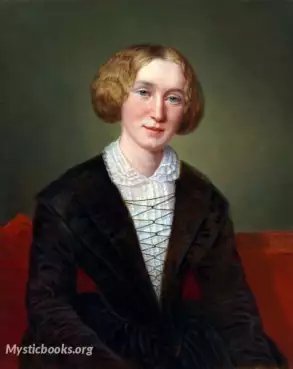
George Eliot
England
Mary Ann Evans known by her pen name George Eliot, was an English novelist, poet, journalist, translator and one of the leading writers of the Victorian era. Like Charles Dickens and Thomas Hardy, she...
Books by George EliotDownload eBooks
Listen/Download Audiobook
Related books
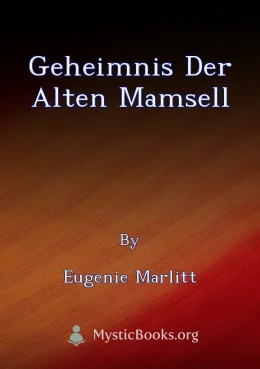
Geheimnis der alten Mamsell by Eugenie Marlitt
In 'Geheimnis der alten Mamsell,' a young orphan named Felicitas, known as 'Fee,' is taken in by the wealthy Hellwig family, but faces prejudice and m...
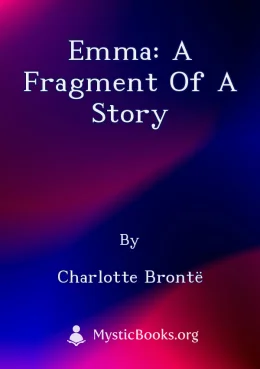
Emma: A Fragment of a Story by Charlotte Brontë
This unfinished novel, published posthumously, follows the intriguing situation at Miss Mabel Wilcox's new boarding school. When a wealthy man, Mr. Co...
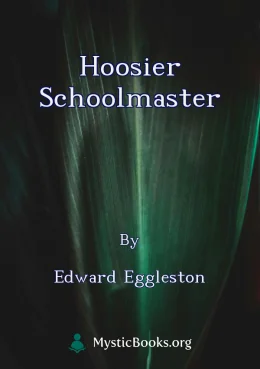
Hoosier Schoolmaster by Edward Eggleston
Hoosier Schoolmaster is a novel by Edward Eggleston that tells the story of a young man named Ralph Hartsook who becomes a teacher in a one-room schoo...

Treasure Chest of My Bookhouse by Olive Beaupre Miller
This volume, part of the 'My Bookhouse' series, presents a compilation of classic children's literature, carefully selected and edited for young reade...
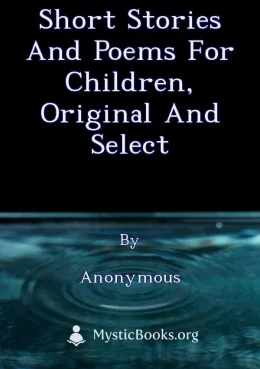
Short Stories and Poems for Children, Original and Select by Anonymous
A collection of short stories and poems for children, filled with sweet but simple life lessons. Filled with classic tales and poems that have been pa...

Bill Nye's Cordwood by Bill Nye
"Cordwood is a collection of humorous essays by Bill Nye, the celebrated humorist and journalist. In these essays, Nye takes on a wide range of topics...
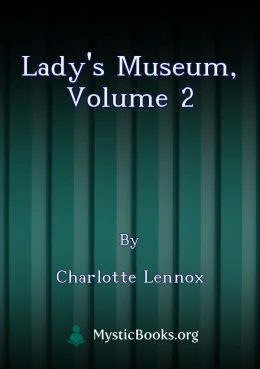
Lady's Museum, Volume 2 by Charlotte Lennox
The Lady's Museum, published in 11 issues between 1760 and 1761, was a periodical designed to educate and entertain female readers. Edited by Charlott...

坊っちゃん (Botchan) by Sōseki Natsume
Botchan follows the story of a young man who becomes a teacher in a small town in Japan. He quickly finds himself at odds with the school's administra...
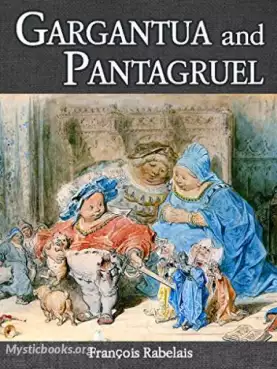
Gargantua and Pantagruel, Book III by Francois Rabelais
The Life of Gargantua and of Pantagruel is a pentalogy of novels written in the 16th century by François Rabelais,a telling the adventures of two gian...

Geschichte des Agathon, Teil 1 by Christoph Martin Wieland
„Die Geschichte des Agathon“ ist ein Bildungsroman, der die Entwicklung des Protagonisten Agathon von seiner Kindheit bis ins Erwachsenenalter erzählt...
Reviews for The Mill on the Floss
No reviews posted or approved, yet...